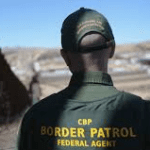 The International Human Rights Law Clinic is working with Alliance San Diego to document abuse by Customs Border Patrol (CBP) agents, elevate the most egregious cases of abuse in the media, seek justice for the aggrieved, and pursue administrative and legislative policy solutions to improve oversight and accountability of the agents. There has been substantial progress made on policy, but advocates, victims, and their families have been frustrated by the lack of legal accountability.
The International Human Rights Law Clinic is working with Alliance San Diego to document abuse by Customs Border Patrol (CBP) agents, elevate the most egregious cases of abuse in the media, seek justice for the aggrieved, and pursue administrative and legislative policy solutions to improve oversight and accountability of the agents. There has been substantial progress made on policy, but advocates, victims, and their families have been frustrated by the lack of legal accountability.